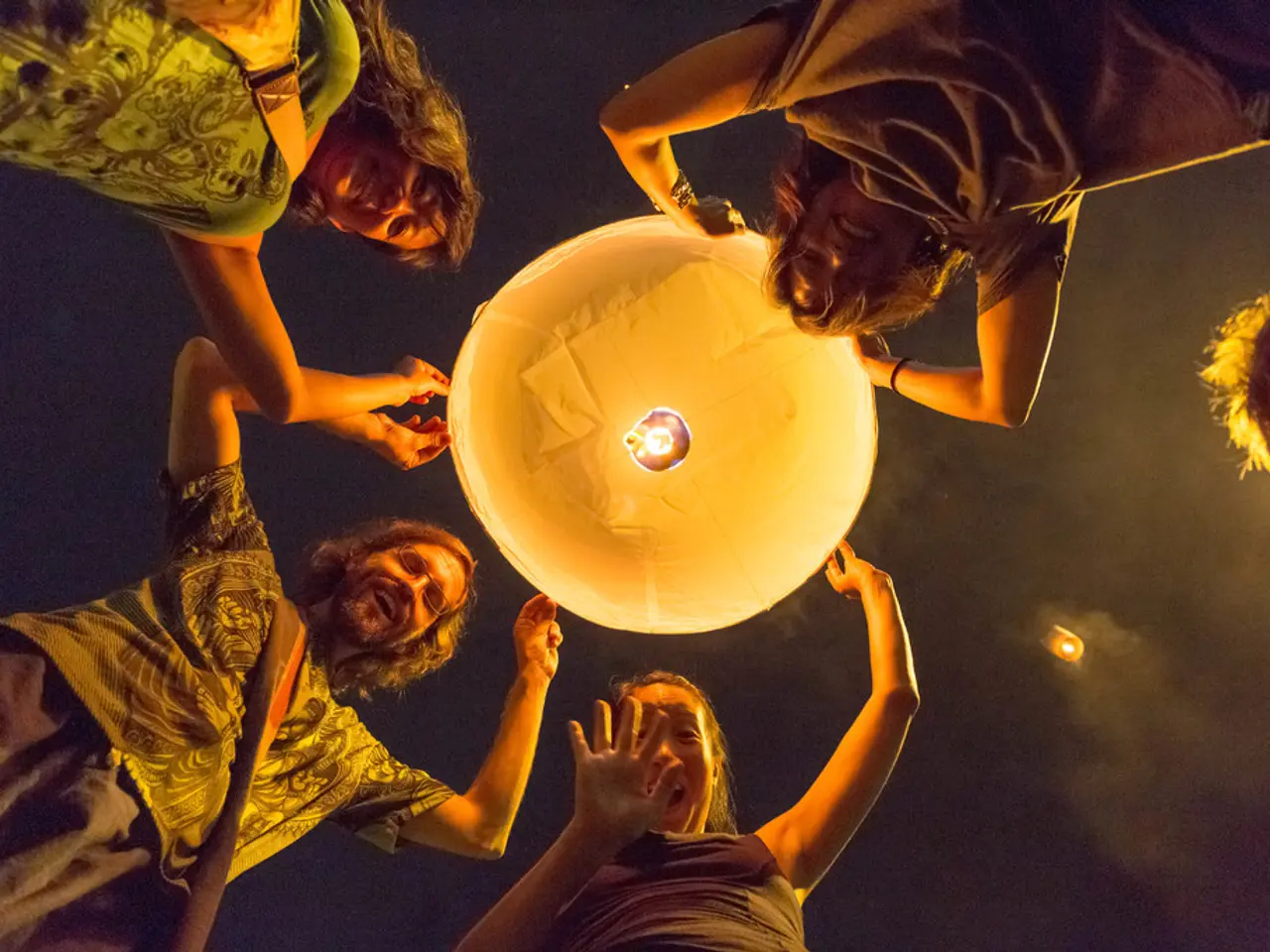Impact of Mental Health and the Enigmatic Northern Lights: The Hidden Psychological Correlation
Experience the Healing Power of the Northern Lights
The Northern Lights, or Aurora Borealis, have captivated humans for thousands of years, and now, they are being explored for their potential therapeutic benefits. These awe-inspiring natural phenomena can combine traditional therapeutic activities with the experience of watching the Northern Lights, offering a unique approach to mental health care.
While aurora-related geomagnetic activity may exacerbate anxiety or stress in some cases, the experience of the Northern Lights also offers a promising avenue for therapeutic applications focused on relaxation, mood improvement, and anxiety reduction. Some evidence suggests that the aesthetic and awe-inspiring experience of viewing the Northern Lights can positively affect mental well-being by promoting relaxation, reducing stress, and enhancing mood through nature exposure and mindfulness-like states.
One feasible approach is organizing mental health retreats centered around aurora viewing. These retreats can leverage the therapeutic effects of nature and the profound impact of the auroras on emotional well-being. For instance, guided nature therapy or ecotherapy sessions centered around aurora viewing can increase calmness and reduce anxiety. Mindfulness or meditation practices combined with the visual stimulus of the Northern Lights can foster presence and emotional regulation. Even using aurora-inspired light therapy or ambient visualizations indoors can simulate calming effects when natural viewing is unavailable.
The mental health benefits of nature are well-established, and specific natural settings or phenomena can sometimes offer their own unique therapeutic potential. Much like forest bathing, aurora viewing is a passive experience that can be deeply meditative and reflective. Personal narratives capture the essence of an aurora experience, providing insights into the depth of emotion and thought these phenomena evoke. The Northern Lights, also known as auroras, are a unique and magnificent thread in nature's offerings, a source of introspection, wonder, and profound emotional experiences for many who behold them.
However, the unpredictability, need for specific geographic locations, and potential expense can make it difficult to incorporate the auroras as a regular therapeutic tool. Further clinical research would be required to validate specific protocols and understand individual variability. Nevertheless, integrating natural light displays like the aurora in mental health strategies aligns with broader evidence that connection with nature and controlled exposure to natural light can benefit emotional health.
In conclusion, the Northern Lights offer a captivating and potentially therapeutic experience for those seeking relaxation, mood improvement, and anxiety reduction. While more research is needed, the potential benefits of such retreats, combining traditional therapeutic activities with the experience of the Northern Lights, are promising.
The healing power of the Northern Lights extends beyond captivation, with potential therapeutic benefits for mindfulness, relaxation, and focusing the mind. The impact on the brain and mental health can be significant, helping reduce anxiety, improve mood, and promote better sleep. These awe-inspiring natural wonders can be integrated into science-based health-and-wellness and mental-health strategies, with possibilities like guided therapy sessions, meditation, or light therapy.
Aurora viewing and nature exposure can stimulate emotional well-being and foster creative thought processes, due to their calming effect on the mind. The circadian rhythm can be influenced by awe-inspiring experiences like the Northern Lights, promoting better sleep and contributing to overall brain health. Yet, more research is necessary to fully understand the therapeutic potential of the auroras and develop effective mental health intervention strategies.
Incorporating the Northern Lights into targeted psychological treatment programs could offer innovative and inspiring approaches to promoting mental health and well-being. Universities and institutions in the field of psychology and brain science can contribute to this emerging research, further unveiling the therapeutic benefits of the auroras for those seeking solace, creativity, or improved mental health.




